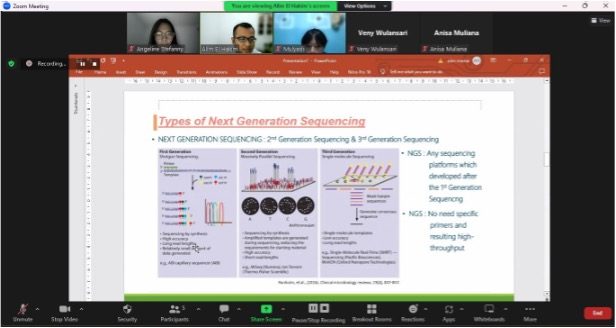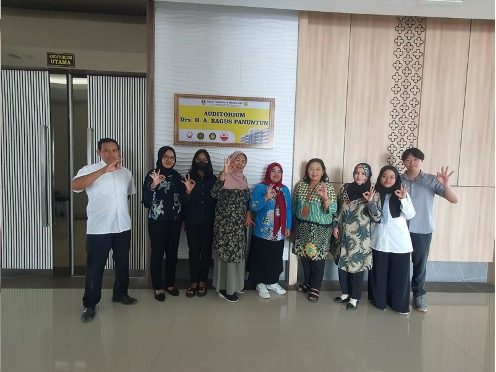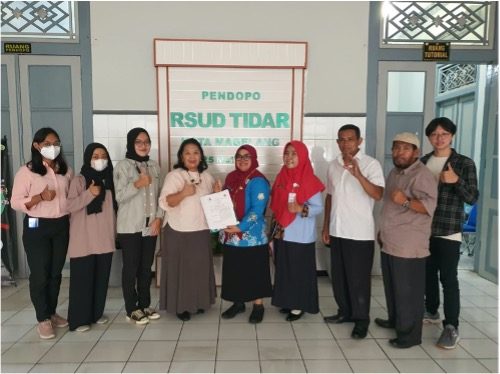The MBKM Thalassemia Research Team from the Faculty of Biology, UGM, consisting of four students Angeline Stefanny, Anisa Muliana, Mulyadi, and Veny Wulansari has undertaken a series of activities under the Independent Learning Independent Campus (MBKM) research program with the topic of Profiling and Genotyping Mutant Variants Causing Thalassemia in Family Members of the Thalassemia Parents Association (POPTI) in Magelang. This program collaborates with POPTI Magelang as an MBKM partner and involves Dr. Niken Satuti Nur Handayani, M.Sc., as the academic advisor, and Dr. Woro Triaksiwi Wulansari, M.Sc., Sp.A., the chairperson of POPTI Magelang and the Deputy Director General and Financial Manager of RSUD Tidar Magelang.
Thalassemia is a genetic disorder resulting from mutations in the synthesis of α and β-globin chains, causing a reduction or absence of one of the chains, leading to an imbalance in the synthesis of these two chains. The prevalence of this disease is increasing in Indonesia due to the relatively high rate of population migration. Therefore, molecular identification of mutant gene variants causing thalassemia in patient populations is necessary as a step towards screening thalassemia carriers within patient families to reduce the incidence of thalassemia carriers and births in the future. Currently, thalassemia carrier screening in patient families is limited to those with the means and understanding of thalassemia genetics. Hence, the MBKM Thalassemia Team is initiating a carrier screening program based on mutant variants causing thalassemia in these patients.
In implementing this program, observations were made regarding the conditions of thalassemia patients who are members of POPTI Magelang at RSUD Tidar Magelang. Data on the first-degree relatives or siblings of patients were collected as potential screening participants. The students also conducted an analysis to select the optimal or sensitive discrimination index (Mentzer, Matos and Carvalho, England and Fraser, King and Green, RBC, Shine and Lal, and Srivastava) for thalassemia screening in the Indonesian population. Additionally, they prepared for the optimization of the DNA sample isolation method and received training in bioinformatics before molecular data processing. Furthermore, a Family Gathering event was organized for POPTI Magelang members to strengthen family ties among members, accompanied by education on thalassemia and the importance of carrier screening by the UGM Thalassemia Research Team. This activity is expected to serve as an initiation in detecting thalassemia carriers within the patient families. However, there is still a need for education among the siblings of patients about the importance of undergoing thalassemia screening to determine whether they are carriers or not. Dr. Niken Satuti encourages and invites the community not to be afraid to undergo thalassemia screening but to fear not knowing whether one carries the thalassemia allele or not.





